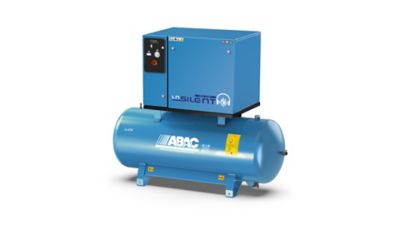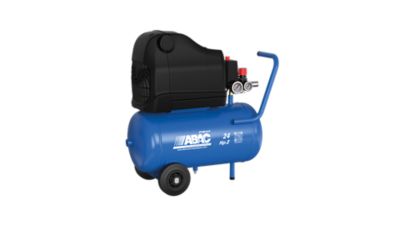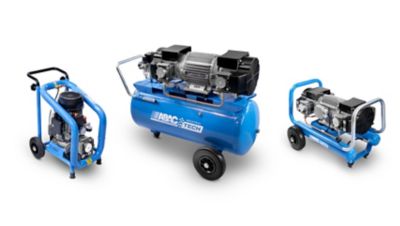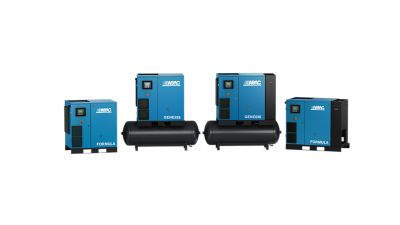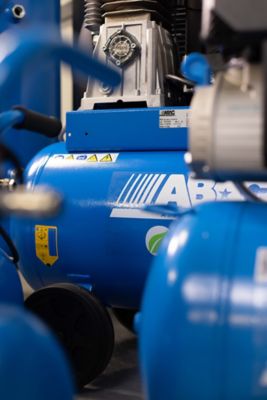Installing a soundproof enclosure around your air compressor can significantly reduce noise levels. These enclosures are designed to absorb and block sound, preventing it from escaping into the workspace.
Selecting the right air compressor for your workspace can be a daunting task, especially when noise levels are a significant concern. Silent air compressors offer a quiet and comfortable working environment, making them a popular choice for noise-sensitive spaces such as dental clinics, laboratories, and home workshops. In this comprehensive guide, we will explore how to select a silent air compressor, the benefits they offer, and additional steps you can take to minimise noise levels further.
Table of Contents
- What is a Silent Air Compressor?
- Factors to Consider When Selecting a Silent Air Compressor
- How to Make an Air Compressor Quieter
- Health Risks Associated with High Noise Levels
- Comparing Traditional and Silent Air Compressors
- Innovations in Quiet Compressors
- What People Often Ask About Quiet Air Compressors
What is a Silent Air Compressor?
A silent air compressor is designed to operate with significantly reduced noise levels compared to traditional air compressors. These compressors utilise advanced noise-reducing technologies and materials to minimise mechanical sound and noise pollution. While a completely silent air compressor does not exist, silent air compressors can operate as low as 60 dB, significantly lower than the average decibel level of traditional air compressors, approximately 80 to 90 dB.
Key Benefits of Using a Silent Air Compressor
Silent air compressors offer several key benefits, including:
- Reduced Noise Levels: Creating a more comfortable and less stressful work environment.
- Increased Productivity: Minimising distractions and allowing workers to focus better on their tasks.
- Health Benefits: Preventing long-term hearing damage for workers.
- Versatility: Suitable for a wide range of applications, from inflating tyres to operating pneumatic tools.
Factors to Consider When Selecting a Silent Air Compressor
Noise Levels
When selecting a silent air compressor, the noise level is a crucial factor to consider. Look for compressors that operate around 60 dB range to ensure a quieter workspace. Keep in mind that prolonged exposure to noise levels over 70 dB can cause hearing damage, so opting for a silent air compressor can significantly improve workplace safety.
Application Requirements
Consider the specific applications for which you will be using the air compressor. Different tasks may require varying levels of air pressure and flow rate. Ensure that the silent air compressor you choose can meet the demands of your intended applications.
Size and Capacity
The size and capacity of the air compressor are also important factors. Determine the amount of compressed air you will need and select a compressor with an appropriate tank size and capacity. Larger tanks can store more compressed air, reducing the need for the compressor to run continuously.
Portability and Maintenance
If you need to move the air compressor frequently, consider a portable model with wheels and handles. Additionally, look for compressors that are easy to maintain, with accessible service points and minimal maintenance requirements.
How to Make an Air Compressor Quieter
Relocating the compressor to a less frequented area can reduce noise exposure. Consider placing the compressor in a separate room (compressor room) or outside the main workspace.
Health Risks Associated with High Noise Levels
Prolonged exposure to high noise levels from traditional air compressors can lead to hearing damage and other health issues. Noise levels over 70 dB can cause hearing loss, stress, and decreased productivity. By using silent air compressors, you can create a safer and more comfortable workspace, protecting employees' hearing and overall well-being.
Comparing Traditional and Silent Air Compressors
Traditional air compressors are known for producing excessive noise, which can lead to various issues such as hearing loss, communication errors, and decreased productivity. Silent air compressors, on the other hand, use advanced sound-reduction technology to minimise mechanical sound and noise pollution while still providing the necessary compressed air for operations.
Key Differences:
- Noise Levels: Traditional air compressors operate around 85 dB, while silent air compressors operate around 60 dB.
- Design: Silent air compressors utilise noise-dampening materials and advanced technologies to reduce noise.
- Health and Safety: silent air compressors help prevent hearing damage and create a more comfortable work environment.
Innovations in Quiet Compressors
At ABAC, we are dedicated to creating a safer and more comfortable work environment. We know that compressors create a lot of noise in industrial settings. We offer solutions that reduce noise and keep high efficiency.
What People Often Ask About Quiet Air Compressors
No, while silent air compressors significantly reduce noise levels, they are not completely noiseless. They typically operate around 60 dB range.
Silent air compressors are versatile and can be used for various applications, including inflating tires, operating pneumatic tools, and providing compressed air in noise-sensitive environments.
You can further reduce the noise of your air compressor by using soundproof enclosures, and relocating the compressor in a separate room (compressor room) or outside the main workspace.



